READY TO GET STARTED?
REQUEST A FREE ESTIMATE
Fill out the form below or call (888) 466-7849 for a free, no-obligation estimate.
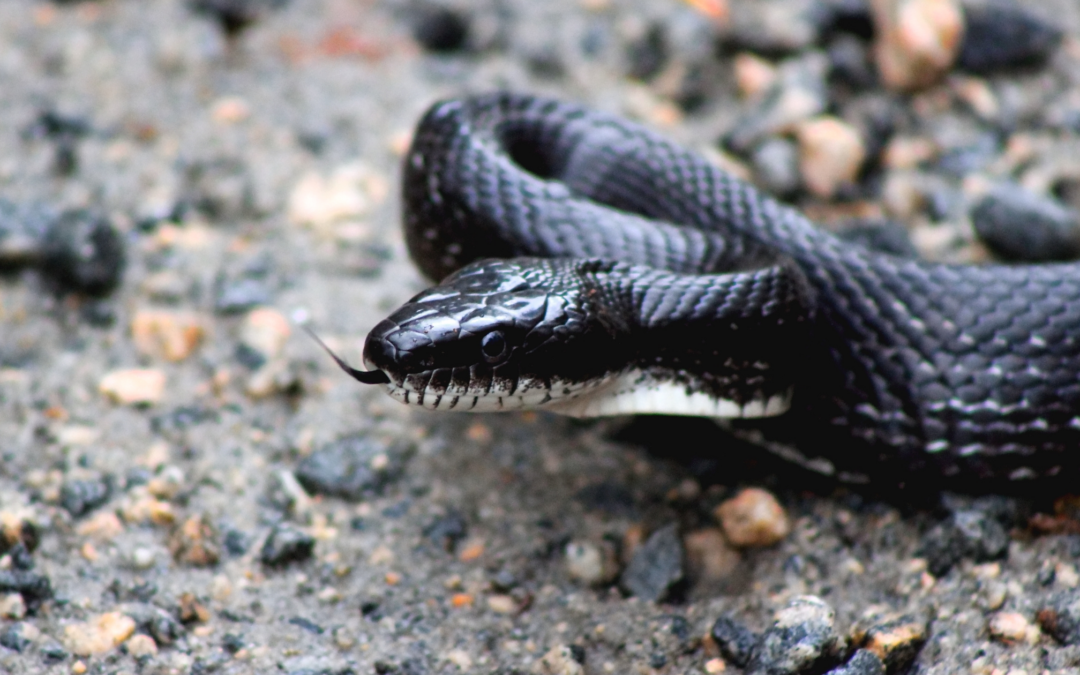
Snakes, with their slithering presence and sometimes unnerving appearance, can be a concern for homeowners in Georgia. Whether you stumble upon one in your yard or suspect they might be lurking nearby, knowing how to handle these reptiles safely and effectively is essential. In this comprehensive guide, we’ll delve into common snakes found in Georgia, tips for avoiding snakebites, what to do if you encounter a snake, and strategies for keeping them away from your property. Plus, we’ll discuss the importance of professional snake removal services and how they can help alleviate your snake problem swiftly and securely.
Georgia is home to a variety of snake species, some of which are harmless while others pose a potential threat. Among the most common snakes you might encounter in the state are:
While most snakes prefer to avoid human contact, encountering them in your yard or near your home can still be disconcerting, especially if you’re unsure of their species or venomous potential.
Prevention is key when it comes to avoiding snakebites, particularly if you spend time outdoors or live in an area prone to snake activity. Here are some essential tips to keep in mind:
If you come across a snake in the wild or in your yard, it’s essential to remain calm and take appropriate precautions. Follow these steps to safely handle the situation:
Preventing snakes from entering your yard in the first place is the best way to avoid encounters and potential problems. Here are some tips to make your property less attractive to snakes:
In cases where snakes have already taken up residence on your property or pose a potential threat to your safety, professional snake removal services are the safest and most effective solution. These trained professionals have the knowledge, experience, and specialized equipment needed to safely remove snakes from your property without causing harm to the animals or risking injury to yourself or your family.
When choosing a snake removal company, be sure to look for one that is licensed, insured, and experienced in dealing with snake-related issues. Additionally, inquire about their removal methods and whether they offer humane relocation services for captured snakes.
In conclusion, while encountering snakes in your yard or outdoor spaces can be unsettling, knowing how to handle these situations safely and effectively is essential for your safety and the well-being of the snakes themselves. By following the tips outlined in this guide and enlisting the help of professional snake removal services when needed, you can minimize the risk of snake encounters and keep your property safe and snake-free.
Remember, when it comes to snake removal, safety always comes first. Trust the experts to handle the job safely and effectively, allowing you to enjoy your outdoor spaces without the worry of unwanted reptilian visitors.
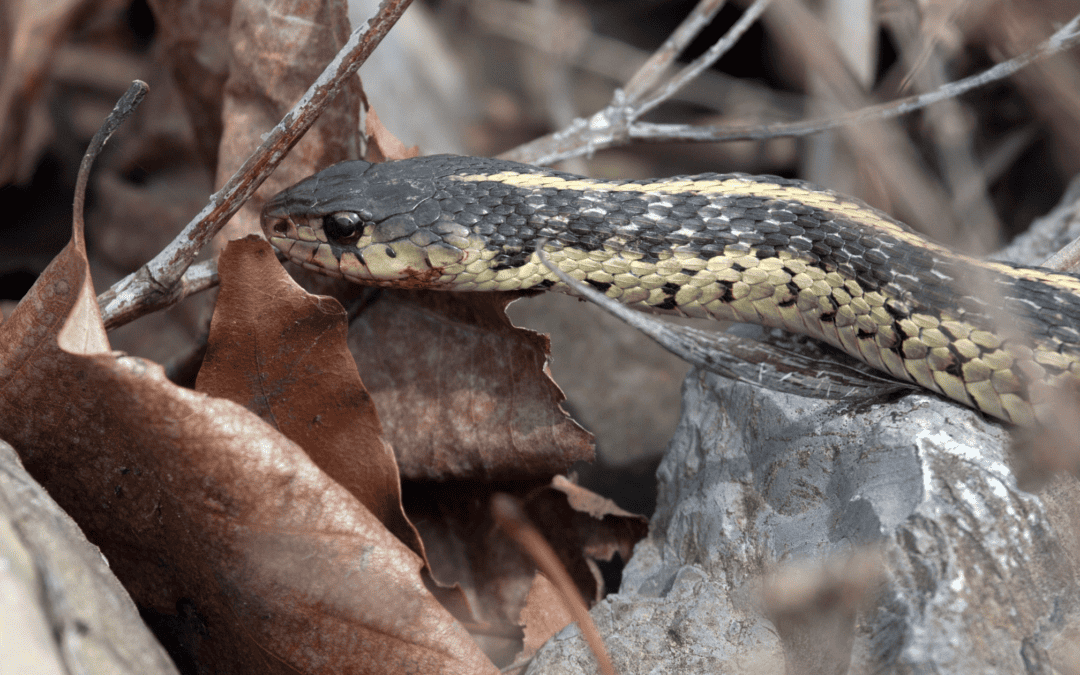
Georgia, with its diverse wildlife, is home to a variety of snake species. As temperatures begin to drop, many people wonder if snakes, like other animals, hibernate during the winter months. In this blog post, we’ll explore the intriguing world of snake hibernation, the differences between hibernation and brumation, and provide valuable tips for effective snake control in your Georgia home.
Contrary to popular belief, snakes don’t undergo true hibernation. Instead, they enter a state called brumation. While hibernation involves a deep sleep, brumation is more of a slowed-down metabolic state. Snakes become less active, but they are not completely dormant. This adaptation allows them to conserve energy during colder months, making it easier to survive until warmer temperatures return.
Brumation typically occurs when temperatures drop, signaling snakes to find a sheltered spot to wait out the cold season. Unlike mammals in hibernation, snakes may occasionally emerge during milder days to bask in the sun and regulate their body temperature. Understanding this behavior is crucial for effective snake control, especially if you want to keep these slithering creatures away from your property.
Concerned about snakes on your property? Our expert pest control team in Georgia is here to help! Whether you need snake removal or wildlife management, we offer effective and humane solutions. Request a free pest control quote today to safeguard your home and enjoy a snake-free environment.
Understanding the habits of snakes during colder months is essential for effective snake control in Georgia. By implementing these tips and being proactive, you can reduce the likelihood of encountering snakes on your property. For comprehensive snake removal and pest control services, reach out to an experienced pest control company. Enjoy peace of mind in every season with our reliable wildlife management solutions.
Request your free pest control quote today and keep your home snake-free!
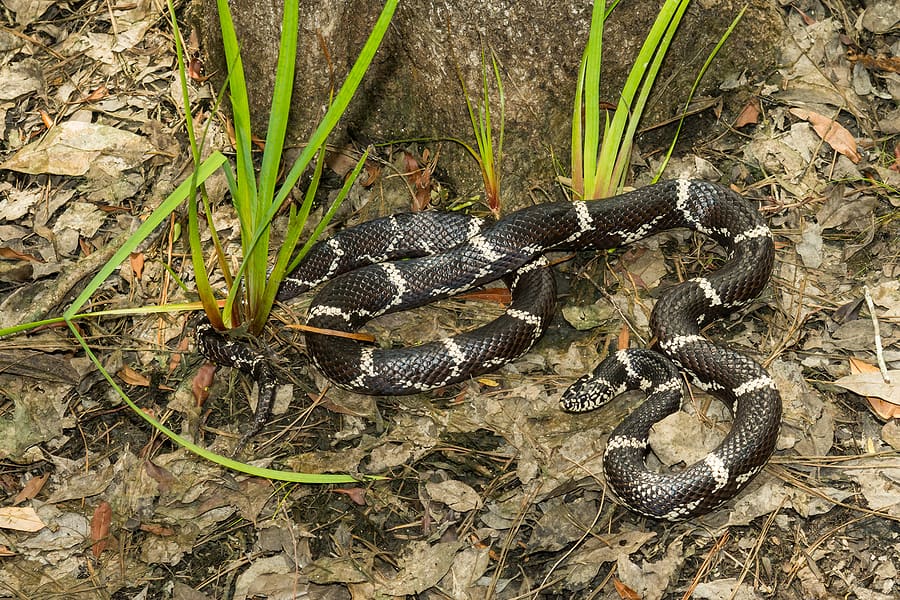
When it comes to living in the beautiful state of Georgia, there’s no denying that the warm climate and lush landscapes come with their fair share of wildlife encounters. One of the most common and, for many, dreaded encounters is with snakes. While Georgia is home to a variety of snake species, understanding snake control, prevention, and removal techniques is essential for safeguarding your property and your loved ones. In this blog post, we’ll explore common snakes in Georgia, when snake season typically occurs, and effective ways to keep these slithering neighbors at bay.
Before delving into snake control methods, let’s familiarize ourselves with some of the common snake species found in Georgia:
Snake season in Georgia typically begins in the spring and lasts through the fall. During this time, snakes become more active as they search for food and suitable breeding grounds. It’s essential to be especially vigilant during these months to reduce the likelihood of unwanted snake encounters.
Now that we’ve discussed common snakes and their active seasons, let’s explore effective snake control and prevention techniques to protect your home and family:
While preventing snake encounters is the first line of defense, it’s also crucial to know how to protect yourself from snake bites:
The importance of effective snake control and removal cannot be stressed enough. While Georgia’s natural beauty and warm climate make it an attractive place to live, it’s essential to be prepared for encounters with snakes. By following these snake control and prevention tips, you can create a safer environment for your family and minimize the chances of unwelcome snake guests. Remember that professional assistance through your local pest control company is just a phone call away if you ever need help with snake removal or control. Stay vigilant, stay safe, and enjoy all that Georgia has to offer!
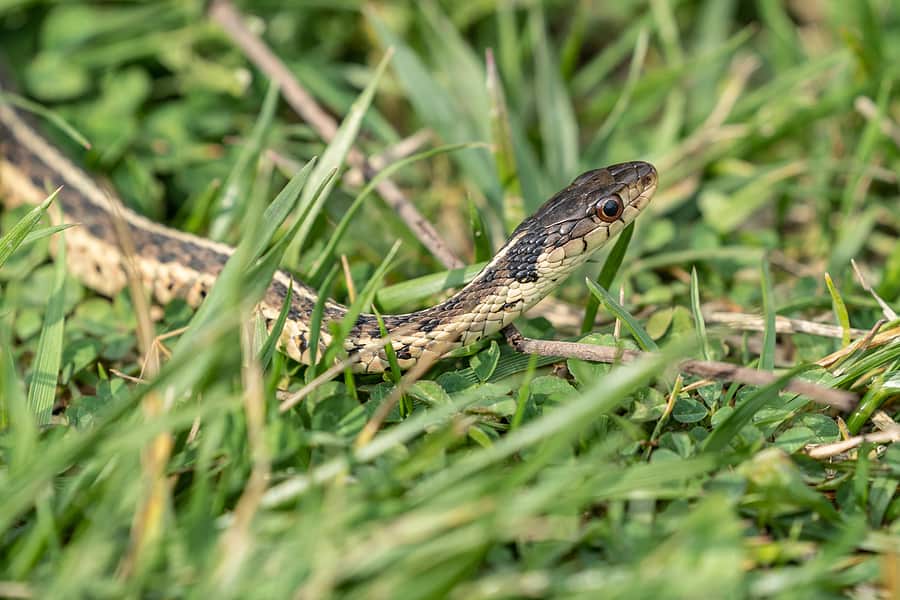
Warm weather means it’s the time of year when snakes are active, emerging in search of food and to bask in the sunlight for warmth. Although most snakes you encounter are nonvenomous, there are a few venomous snakes in Georgia. While many people may not enjoy running into a snake near their home, they can be quite beneficial to have around. Snakes eat other problematic pests that commonly infest your home, such as rodents, making them a natural form of pest control. If the thought of a snake sharing your space still makes you uneasy, try these DIY snake repellent methods to keep your yard snake free.
A frequent ingredient in many commercial snake repellent products is napthalene. It is one of the most widely used repellents. If you don’t want to buy a commercial product, napthalene is the major component of moth balls. The odor of napthalene annoys snakes but does not kill them. Mothballs should be placed in any holes, gaps, or crevices on your property where snakes could be an issue. If moth balls are consumed, they can be toxic and dangerous to children or pets, so use caution or avoid using them if you have pets or children in your home.
Powdered sulfur is an excellent snake repellent. If you sprinkle powdered sulfur around your home and property, snakes will avoid it since it bothers their skin. Because sulfur has a strong odor, wear a mask that covers your nose and mouth when applying it.
Clove and cinnamon essential oils are powerful snake repellents. For best efficacy, combine these ingredients in a spray bottle and spray directly on snakes. Caution is advised because snakes frequently run in the opposite direction of the spray. This mixture can also be used as a fumigant in a diffuser.
Garlic and onions contain sulfonic acid, which repels snakes (the same chemical that makes us cry when we slice onions). For maximum effectiveness, combine this with rock salt and sprinkle around your home and yard. Infuse garlic into any essential oil and use to fumigate rafters, basements, and other difficult-to-reach areas.
Because snakes dislike the odor of ammonia, spraying it over any frequented locations is one alternative. Another approach is to soak a rag in ammonia and place it in an open bag near snake-infested areas to keep them away.
Vinegar repels snakes near bodies of water, particularly swimming pools. For a natural snake deterrent, pour white vinegar around the perimeter of any body of water.
Mix lime with hot pepper or peppermint and sprinkle it around the perimeter of your home or property as a snake deterrent. Snakes dislike the fragrance of the mixture, and the fumes irritate their skin.
Snakes consume rodents, frogs, birds, moles, voles, insects, and even fish. If these food sources are removed, the snakes will move on in search of another source.
Inspect the exterior of your home and property carefully and repair any cracks or holes you find. Repair any gutters, plumbing, or ventilation ducts that are damaged. Repair or replace any damaged window and door screens. Snakes will also seek refuge in wood piles and garbage piles. Store firewood in sealed, lockable wood boxes if possible. Remove any heaps of wood chip mulch, straw mulch, leaves, or other debris that may have accumulated on your land.
Garden on a regular basis to remove any snake attractants such as debris, holes, and overgrowth. Keep the grass short to eliminate snake hiding areas. Install snake-proof fencing consisting of steel mesh, plastic sheeting, or a capture net. If you do put up fencing, make sure it is flush with the ground, oriented outward, and at least 3 feet high and 4 feet deep. You can also use things that snakes find difficult to slither over, such as holly leaves, pine cones, egg shells, and gravel. Planting snake repellent plants, which provide a natural deterrent, is another option. Marigolds, lemongrass, and wormwood are some typical examples.
If these DIY methods aren’t working or you just feel more comfortable with professional help, contact your local pest control company for a quote on snake removal services.
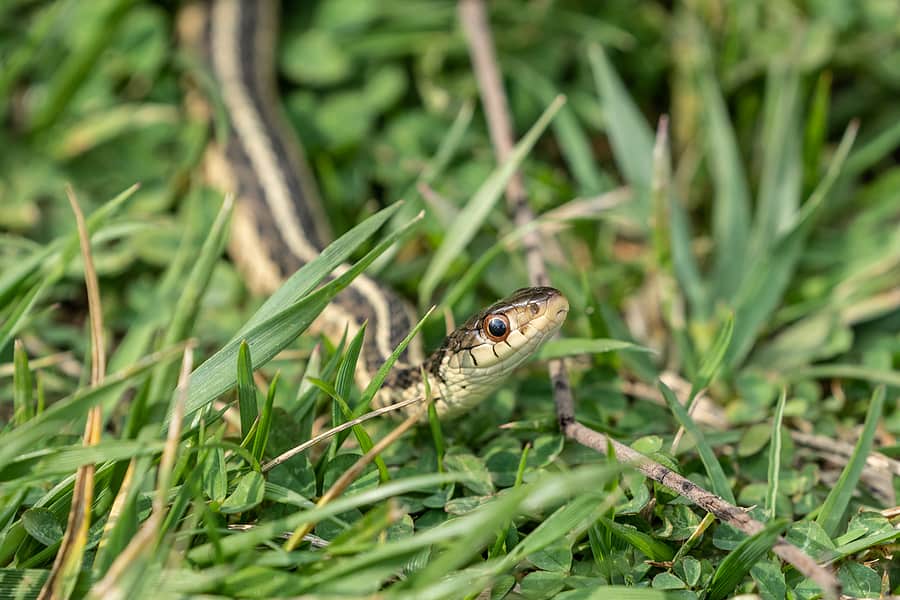
While the majority of snakes found in Georgia are non-venomous, there are a handful of venomous snake species around. Your first instinct when coming across a snake in or around your home might be to panic or to immediately get rid of it, unless it poses a direct threat to you or your family the best thing to do is leave it alone. Here are some benefits of keeping snakes around.
Snakes can be great to have around your home. If you can’t abide by the idea of a snake living close by, you can prevent them with these tips.
If you do have a problem with snakes around your home, contact your local pest control company for a safe snake removal service.